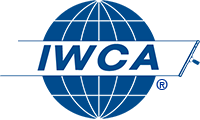Coordinating Credit Card and ACH Acceptance Can Lead to Robust AR Strategy
February 2020
https://go.evopayments.us/b2b/february2020/1
B2B companies are constantly looking to put the buying power in the customers’ hands. As the automated B2B payment space continues to grow rapidly, it is worth noting that 51% of all B2B payments are still being made with paper checks. Bank of America estimates that a single business check can cost anywhere from $4 to $20 once the time and cost of invoice creation, mailing, collecting, and reconciling the check are all accounted for.
It’s time to eliminate paper and lean on ACH payments or credit card payments. Both have their advantages and it’s important as a company to process both. We look at the benefits of each and how coordinating the two can help you build a more robust AR strategy.
Size of transactions vs. volume of transactions
It’s all about customer preference at the end of the day. For example, if a company is bringing in $1 billion from 100 customers, that equates to $10 million per transaction. In this case, a check, or electronic check (e-check) would be the most effective way to collect that payment.
On the flipside, if you are selling nuts and bolts to 50,000 customers at an average order of $5, there are too many invoices to manually process paper checks, so credit card payments would be more effective. The simplest way is to put the power in the customers’ hands.

Advantages of credit cards
On average, sales increase 17% for B2B companies that offer credit card payment options to their customers. Increasing the acceptance of credit card payments for all transactions allows B2B companies to:
- Accelerate cash flow
- Skip long invoicing procedures
- Forgo waiting for payments
- Receive payment instantly
- Avoid the high cost of manually processing checks
The more expensive your invoices are, the more likely you are to use checks or ACH and avoid credit card fees. For example, if you have a credit card transaction of $100k at a cost of 2.5% in fees, that is $2,500. For that cost, you could fly from New York to San Francisco, stay there three nights, order a bottle of wine, and personally collect the check from your customer. The 15 minutes of time it would take you to process the check could save you $2,500.
B2B companies are accustomed to receiving checks for a majority of transactions, but electronic payments are becoming more commonplace. Customers are now using apps for their personal banking and mobile commerce for products and services. According to data from NACHA and the Credit Research Foundation, “Accounts receivables professionals expect the portion of ACH payments received to increase to 45 percent by 2020.” It’s time to move to digital payments because accepting checks can prove costly for your B2B company at the end of the day.
A good B2B payment gateway allows merchants to accept a variety of payments, including ACH, credit cards, and debit cards, and integrate with suppliers and customers in a seamless manner. Making the most out of your gateway allows you to streamline both payments and improve your AR strategy.



